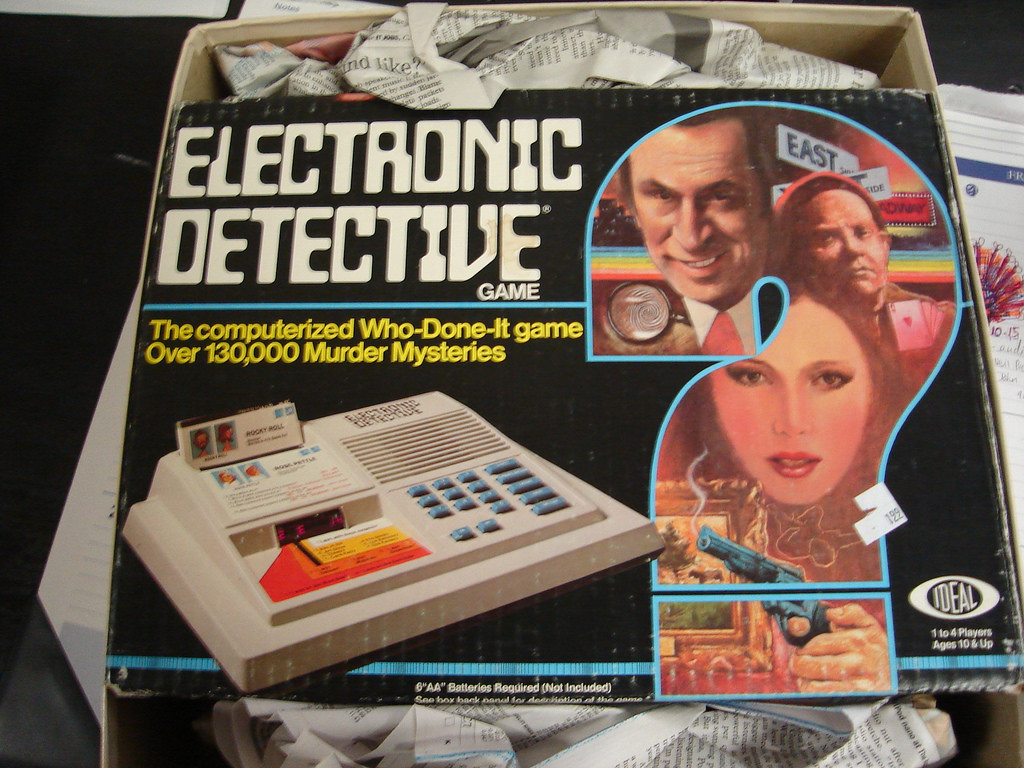As a kid, I loved watching Get Smart – the classic Mel Brooks sitcom starring Don Adams as the clumsy Agent 86.
I had several snub-nosed cap guns which looked just like the one Agent 86 had. I pretended to have a phone in my shoe. But, I was much more clever and did not have an “Agent 99” in my life. Just buddies who loved to play spy games.
In 1979, Ideal came out with a new game – “Electronic Detective.” And on the cover of the box was none other than Don Adams (aka Maxwell Smart).

Photo Credit: Detective Computer via Compfight cc
I had to have this game for my birthday. I showed it to my mom in the store and explained it was worth every one of the $20 or so dollars it cost.
It took forever for my birthday to arrive…I could not turn 10 quickly enough. And finally, the big day arrived.
Looking back, I do not have any idea what I got for my 10th birthday, but I do know it did not include the “Electronic Detective” game.
I must not have contained my disappointment very well because I did end up getting it for Christmas.
Today’s post is not to encourage you to teach your kids to whine and act disappointed when they do not get what they want, but to remind you we were likely disappointed as kids. We may have been disappointed by our parents, by our friends, by not having the cool stuff other kids had, or by not having the same skills as our friends.
When my son gets disappointed, instead of jumping to the lecture, I need to first remember what it feels like…from a kid’s perspective. When I get disappointed as an adult, I have the benefit of experience and wisdom to help me process. My son does not have those years and examples to draw from. To him, it can sting bad.
For example, last Friday night he got in the truck after flag football practice and you would have thought someone died. He told me he will never get to play offense and another one of the kids took his role as kicker.
I almost went into lecture mode, but instead asked him a few questions. Why did he think he lost the job as kicker? Would he like to get the job back? If so, how? What would it take to change the coach’s mind?
It seemed to help him process the realities, but did not appear to motivate him to practice (in his defense, he had never kicked before). He needed to process it all.
My job, I think, was to let him know I understood his disappointment, was interested in his observations, and was willing to help him if he chose to take me up on it.
On Saturday morning, we had to stop by the sports store to grab another mouth guard (how do these kids destroy/lose so many mouth guards???) and he saw a kicking tee. He asked me if I would get it so we could practice kicking.
It seems he handed disappointment better than I did back in ’79.
How have you prepared your kids to deal with disappointment or helped them get out of the funk?
